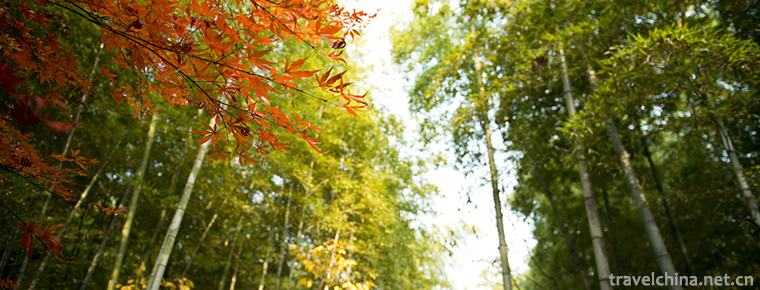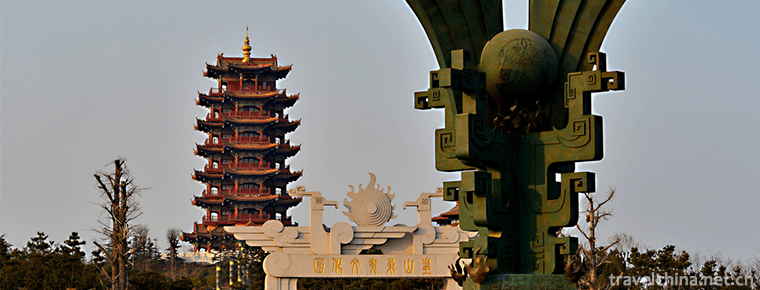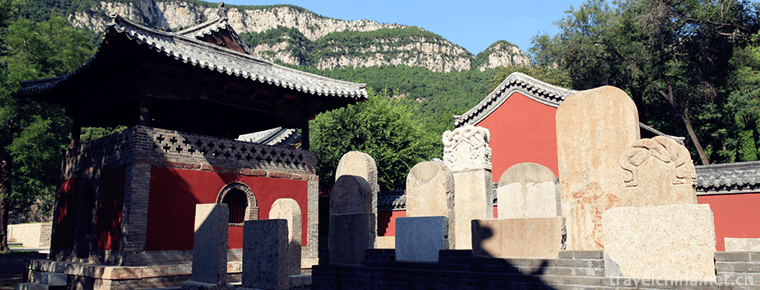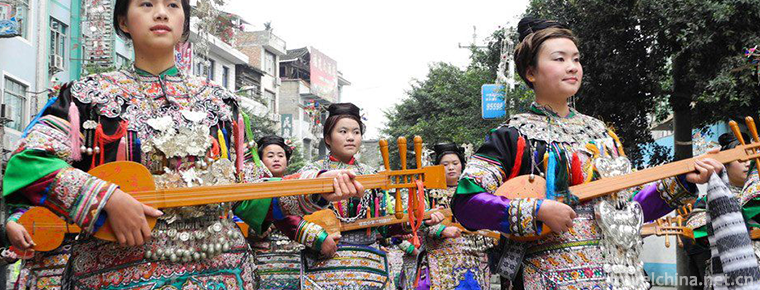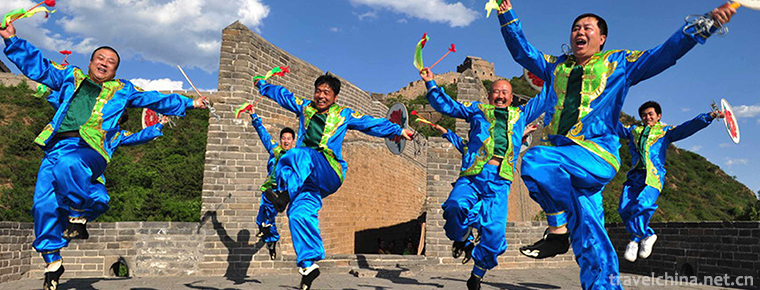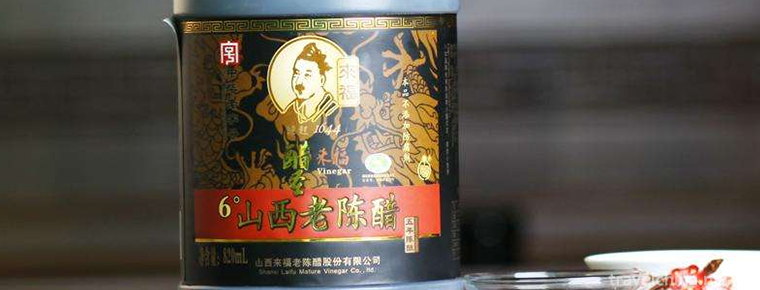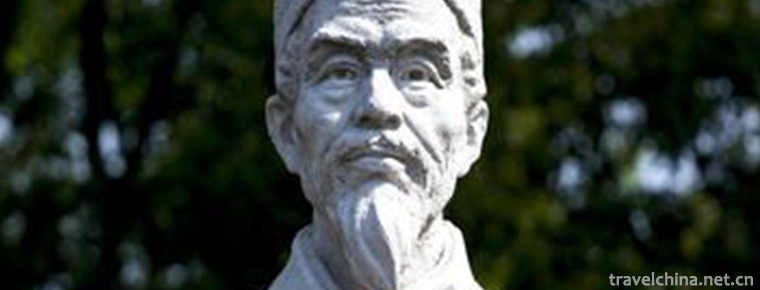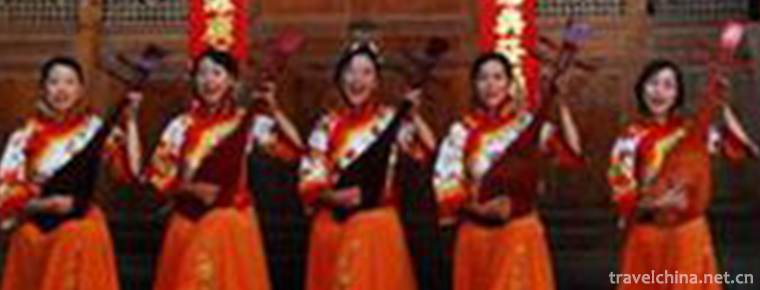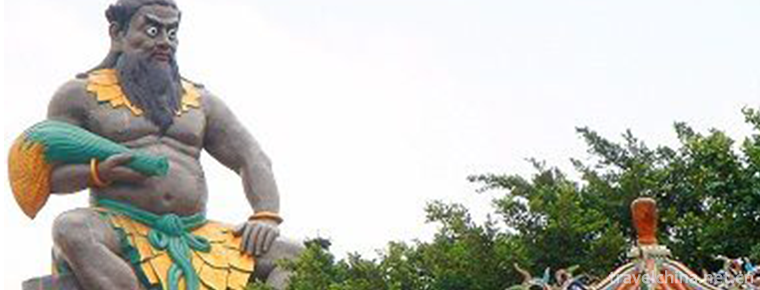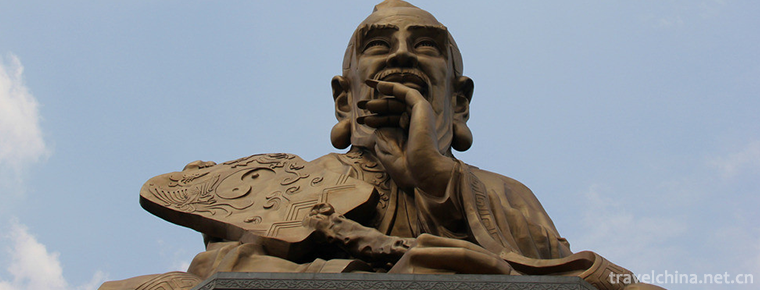Scratch sheep race
Scratch sheep race
The Naoyang Competition is a traditional Chinese folk custom activity mainly in Xinzhou City, Shanxi Province. It's a wrestling competition with a live sheep as a prize. In the countryside, "scratching" is interpreted as "carrying" and "scratching sheep" is carrying sheep and pulling them away. So "scratching sheep competition" means winning or losing sheep competition.
On June 7, 2008, Naoyang Race was approved by the State Council to be included in the second batch of national intangible cultural heritage list.
Historical Legends
The use of sheep as a prize in wrestling competitions is handed down from the Chinese people. According to legend, in the Yuan and Ming Dynasties, Xinzhou had abundant aquatic plants, which was an ideal place for sheep herding. At that time, the wrestling activities often used sheep as a bet to win or lose in wrestling. At first, there was no special organization, just wrestlers want to throw away, want to gamble, over time, it evolved into a prize for sheep and some people organized a competition.
In wrestling competitions, wrestlers usually wear wrestling clothes. In the scratching sheep competitions in Xinzhou, wrestlers do not wear wrestling clothes. They went to battle barefoot and dressed casually in long and short clothes. In the actual combat of wrestling, because the upper body is BARE-BACKED and there is no place to catch each other, they can catch each other.
Places are concentrated in the lower body, but can not grab pants, who grabbed each other's pants, even if who lost. But it's permissible to grab the belt on your pants. In the actual competition, the participants in the scratching sheep race never need to tie their belts with leather, but only use a hemp seedling silk. Once the hemp seedling silk is broken, the race must stop. Only after replacing a pair of trousers and fastening the hemp seedling silk can the race continue.
rule
The wrestlers in the scratch-sheep race win or lose by a fall. Except that the wrestlers and footboards are standing on the ground, the other parts of the body can lose as soon as they touch the ground. They don't play a round-robin race. The losers are eliminated and the winners continue to compete with the novices. If three opponents fall in succession, they will be encouraged accordingly after the match. When five opponents were thrown down in succession, the winner was regarded as a "hero" and was given considerable encouragement after the match. When the sixth opponent falls down successively, people call him a scratcher. They give the highest award to the scratcher and give the winner a big white sheep prize.
In the scratching competition, the wrestler wins five in a row and becomes a hero in people's minds. These five and six are a long-term Chinese folk custom which was formed by the Enlightenment of General Guan Yu of Shuhan in the ancient Three Kingdoms. However, it is not easy to "cut six generals through five passes". On the scratching field, both sides are attacking and both sides are defending. The wrestlers not only need superb skills, but also both sides have off-the-field guidance and use their wisdom. Often, when the wrestlers are on the same level, there is a situation of all-night struggle.
There are temple fairs in the urban and rural areas of Xinzhou, but they are bound to scratch the progress of sheep competitions, which will undoubtedly add luster to the temple fair and attract many audiences from all sides. There is a local proverb that "if you don't wrestle in a hurry, you will see fewer people, you will see fewer singing operas and wrestling, and all the villages and villages will see the excitement." In the area of Xinzhou, there are many times of meeting in a year. Within a hundred miles around Xinzhou, there are four or fifty times in a year. All these temple fairs will have sheep scratching competitions. In addition to the scratching competitions held at Temple fairs, special scratching competitions are also organized at leisure. There are local proverbs: "Autumn is set up, HOEs are hoed, melons are eaten, theatres are watched, wrestling cattle are herded". This is enough to show that farmers regard wrestling as a major event, not to be ignored. Most of the sheep scratching competitions in the leisure time after the autumn harvest are between larger villages and stronger wrestlers. Of course, this kind of competition needs to invite other villagers to be judges and notaries.
Many days before the event, the host village released the news of "scratching sheep race". The wrestling ground was chosen on a broad threshing ground or in front of the stage. A big flag and two small flags were erected on the field. On the flag, eight words were written on each side: "The hero falls innocent of falling to death". After the founding of the People's Republic of China, it was written as "peaceful wrestling, do not harm people", until today's "friendship first, competition second". Whether in the past or now, the two flags are for the wrestlers to pull out, and the people who pull the flag must be the "scratching man" who once carried the sheep. The two men who drew the wrestling flag became the representatives and masters of both sides in the wrestling competition. Of course, they also need to divide the preliminary wrestlers of Team A and Team B through the head of the host village or notaries through joint consultation. The Yuanping Temple Fair is held on July 15 of the lunar calendar every year. The sheep scratching competition was held in Yuanping Town. At that time, it will be the wrestling competitions in Xinzhou, Dingxiang and Yuanping counties. The level of these three counties'wrestling competitions is much higher than that between villages and villages, and the competitions are much more exciting. This kind of high level wrestling competition often makes the number of temple fair increase sharply, brings strong stimulation to people's spirit, and spreads sensational news in the climax of the competition.
Inheritance and Development
Local folk custom, scratching sheep race mostly in the evening, in the past lighting equipment backward circumstances, can only light, and lighting people also followed the wrestling two opponents ran around. Sometimes, wrestling in front of the stage and singing opposite to the performance of the opera, all of a sudden, the audience turned to the wrestling arena, around the wrestling arena, sitting on the ground, riding on the wall, climbing trees, sitting on bricks, stones, crowds, a pair of eyes glaring round, to the splendid spot of wrestling, cheers burst out, and a sensational storm swept over the ground. Naturally, the actors there are still performing, but they have to be distracted and squint at the wrestling results.
Competition prizes
The prizes of "scratching sheep competition", whether they are fat sheep or other prizes, are paid by the host villages and towns. Naturally, such expenditure is collective money, or the cost of raising funds.
The climax of the "scratching sheep race" is that after a "scratching sheep man" won six wrestlers in a row, people let the winner wear red flowers and send the sheep to his side, ride a big horse, circle the field for a few weeks, and eat a rich wine banquet, then be escorted out of the village to go home. At the same time, the name of the winner will be recorded in the annals of history and will be remembered for future generations.
The scratching sheep competition has been circulating in Xinzhou, Yuanping and Dingxiang for thousands of years, and has become a mass sports activity, which attracts people's attention.
Other correlations
According to legend, before the Northern Song Dynasty, people in Xinzhou Prefecture liked wrestling, but at that time, wrestling was limited to general entertainment activities. In the Southern Song Dynasty, after the murder of Yue Fei, a famous national hero and anti-Jin general, a veteran of Xinzhou nationality returned to his hometown. The veteran never forgot his ambition to resist the Jin Dynasty, so he passed on the martial arts skills of boxing and wrestling learned in the army to his local villagers. Because of the historical conditions at that time, the martial arts were prevalent, which was his skill of resisting the Jin Dynasty, and also his skill of self-defense. Over time, it became a local folk tradition. At that time, Xinzhou had abundant aquatic plants and a lot of sheep raising. Because of these conditions, it developed into a "scratching sheep competition" and flourished.

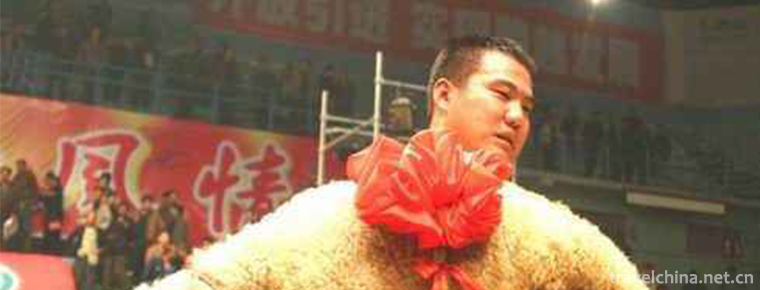
-
Nanshan Bamboo Sea Scenic Area
Tianmu Hunan Shanzhuhai Scenic Area is located in Liyang, Jiangsu Province, which is the junction of Jiangsu and Anhui Provinces. It is a national 5A scenic spot..
Views: 203 Time 2018-12-31 -
Huangshan Yi Culture Tourist Area
Huangshan Yi Cultural Park is a national AAAA-level tourist attraction, located in the northwest of Linyi Economic and Technological Development Zone..
Views: 264 Time 2019-01-18 -
Lingyan Temple in Jinan
Lingyan Temple, built in the Eastern Jin Dynasty, has a history of more than 1600 years. Located in the north foot of Mount Tai in the southwest of Jinan City, Shandong Province.
Views: 246 Time 2019-02-03 -
Sama Festival of Dong Nationality
Sama Festival of Dong Nationality is spread in Rongjiang County, Liping County, Congjiang County and the surrounding areas of Dong Nationality in Guizhou Province.
Views: 103 Time 2019-04-28 -
Taiping Drum in West Beijing
Taiping Drum, a folk dance in Mentougou District of Beijing, is one of the national intangible cultural heritage..
Views: 117 Time 2019-05-07 -
Brewing Techniques of Old Vinegar
Qingxu old vinegar brewing skills, Shanxi Province Qingxu County local traditional skills, one of the national intangible cultural heritage..
Views: 125 Time 2019-05-11 -
Legend of Li Shizhen
Li Shizhen is a great medical scientist in Ming Dynasty in China. His footsteps have traveled all over Jiangxi, Jiangsu, Anhui, Hunan and Guangdong. The legends about him and Compendium of Materia Med.
Views: 197 Time 2019-05-13 -
Nanping Opera
Nanping Opera is a folk art popular in the area of Jiuzhaigou County (former Nanping County) on the Northwest Plateau of Sichuan Province. It was once called "Nanping Pipa Playing and Singing&quo.
Views: 293 Time 2019-06-07 -
Legend of Emperor Yan Shennong
Yan Emperor Shennong, one of the three emperors and five emperors, is one of the local folklores in Suizhou, Hubei Province, and is the national intangible cultural heritage. After Wa Fuxi, a stepdaug.
Views: 194 Time 2019-07-10 -
Lao Tzu
Laozi, surnamed Li Minger, is a character of Bai Yang, or posthumous Bo Yang. In the late spring and Autumn period, the birth and death years were unknown. About 571 years ago, it was born in the late.
Views: 194 Time 2019-09-04 -
Historical evolution of Neijiang
Xia and Shang were Liangzhou, Zhou was Yongzhou, spring and autumn and Warring States were ba Jun and Shu Jun; Western Han Dynasty was Zizhou; Eastern Han Dynasty was Han'an county..
Views: 322 Time 2020-12-16 -
Leshan science and technology
By the end of 2018, Leshan had 12 provincial engineering technology research centers and 33 municipal engineering technology research centers. There are 83 high-tech enterprises and 353 Municipal Science and technology enterprises. There are .
Views: 175 Time 2020-12-17
